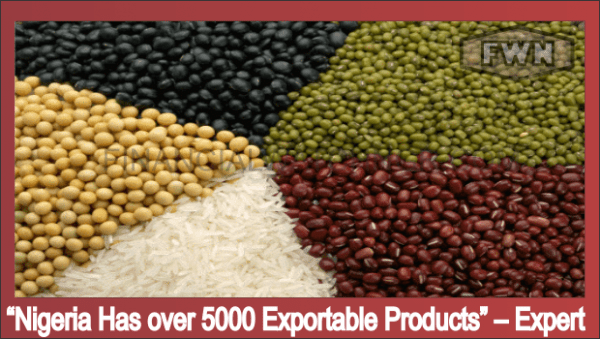The Central Bank of Nigeria (CBN) stepped
up its development intervention in the economy as it disclosed some days ago
that N500 billion Export Stimulation Facility and N50 billion Direct
Intervention Fund being under consideration for two years has fully taken off.
Nigerian exporters are therefore advised to build their capacities on the
contemporary dynamics of export trade to avoid being defrauded by the foreign
buyers of their products. The loan will only be given to experts in export
business. Click on this link and get a manual that teaches everything about
exportation from Nigeria: http://www.tectono-business.com/2016/02/contemporary-step-by-step-guide-to.html
The
move, which is a fallout of series of engagements with the exporters and banks
with CBN, would be looking at boosting exports of value added products in the
non-oil sector- cocoa, cashew nuts, palm produce, sesame seeds, solid minerals
and rubber. Making the disclosure in Lagos, CBN Governor, Godwin Emefiele, said that while the apex bank would be working
with new management of the Nigeria
Export-Import Bank (NEXIM), it is part of strategies to create other means
of survival for the country rather than just rely on the oil.
Meanwhile,
the Governor of Lagos State, Akinwunmi
Ambode, at the opening of the 2017 Bankers Retreat, urged CBN and banks to
reduce profit considerations in every endeavor, particularly in the discussion
of development financing that concerns the poor borrowers. Ambode, who
expressed worry that the Micro Small and Medium Enterprises fund by CBN, worth
more than N200 billion is yet to be utilised by banks, even at nine per cent,
said the state’s employment trust fund has released N10 billion at five per
cent to more than 6000 people.
He
said: “If you want to activate a particular sector of
the generality of Nigerians are into, shut your eyes to profit making
sometimes, because it is a sector-driven strategy. If CBN says they are
interventionist, and want to give money, in the form of agriculture loan, why
is it still high, especially for people at the lower level? The banks should
not forget that these funds are not commercial loans, but funds from CBN to
them to act as intermediaries on behalf of the poor people. Is it every time
that banks must make profit?”
Comparing
Kenya’s record in mobile money, the governor lamented that Nigeria’ version has
been so slow to take, with the usage in particular slower, moving from 0.7
million adults in 2014 to 0.9 million in 2016. According to him, it shows that
the uptake is still very low compared to adult population of 58.2 million who
had mobile phone in 2016, but pointed out that there too many competing systems
and regulations in this country.
But
Emefiele said that the new drive would be focused on “Produce, Add Value and
Export” (PAVE), which would ensure that the products are improved before
export, not just raw materials, to earn more value and create additional job.
“In this meeting today, we met with the exporters and the banks. The
purpose is to see to what we can do as CBN to support the activities of
exporters in the country so that through this means we can see more of exports
revenues from the non-oil sector to support the economy.
“We have decided to bring back to the table the N500 billion Export
Stimulation Facility that we had proposed two years ago, as well as the N50
billion Direct Intervention Fund from the Nigeria Export-Import Bank. We have
an improved NEXIM with new management there now and they have a very excellent
track record of understanding of the private sector and the credit processes.
“We have also decided that we are going to have not just NEXIM, but
CBN’s Development Finance Department, as well as the Governors Department’s
Special Adviser on Agriculture to put a framework in place as to how the funds
will be disbursed,” Emefiele
said.
He
explained that since export season is currently on, “we
have given the Development Finance Department and NEXIM a maximum period of one
week to come up with the framework. But we are going to wait till then because
we have enjoined the banks and exporters to send in request through NEXIM or
directly from their banks to Development Finance Department for the processing
to begin because we know that this is a season for cocoa and cashew.
“For now we are not even waiting for a detailed framework, there is
already an existing one. We would just update it and make it an encompassing
document that covers all areas and be sure that everything is accommodated. But
the most important thing is that we made it clear to exporters that it is an
opportunity for us to create jobs and earn more export revenues, but whatever
they do will be heavily monitored. Again, that the benefits expected if the
intervention must be realised,”
he added. (Guardian)
Have you heard this?
Many Nigerian exporters have been defrauded of huge amount of money in the
process of exporting commodities to foreign countries. Do you know why? They
were not trained on export operations, management, documentations and the best
methods of payment in export trade. This is terrible!!! Nigerians cannot
continue to lose money to foreigners in the course of export business.
Exporters, why don’t you get a practical manual that teaches the stages of
export trade from processing and packaging of commodities to receipt of payment
by the foreign buyers. It teaches export operations, export management, export
documentations and methods of payment in export trade? It is a contemporary
step-by-step guide to export trade. It tells all the contemporary dynamics in
export trade. To get it, click on the link below:



No comments:
Post a Comment